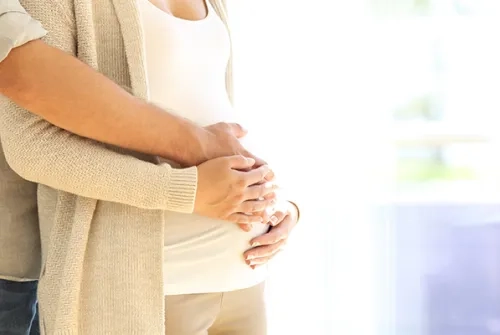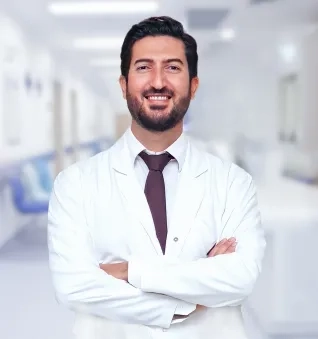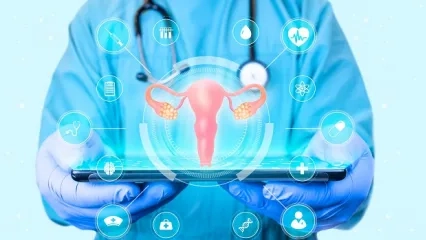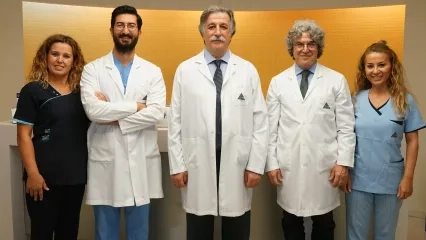Alo Yeditepe
Alo Yeditepe
Getting Cancer Treatment Does Not Stop You from Having Children!
Emphasizing that Since cancer treatment is a treatment that damages reproductive cells, egg or sperm freezing can be performed before cancer treatment in our country, Yeditepe University Kozyatagi Hospital Gynecology and Obstetrics Specialist Assistant Professor Mert Yesiladali stated, “Thus, patients can have children after cancer treatment. However, unfortunately, most of the patients do not have enough information on this subject."
Today's cancer treatments have advanced to the point where many cancers can be treated with excellent outcomes. Yet, it's also crucial to maintain fertility, especially for those who have experienced cancer at a young age and who wish to start a family.
Obstetricians and gynecology specialist Asst. Prof. Mert Yesiladali of Yeditepe University Kozyatagi Hospital claimed that egg and sperm preservation methods used before to cancer treatment can give patients the chance to have children.
Patients Lack Sufficient Knowledge on This Subject!
Yet, suggesting that patients still lack sufficient information on this topic, Assistant Professor Mert Yesiladali revealed the study's intriguing findings:
''Only 6% of cancer patients were advised that their treatment could lead to infertility and that there were ways to protect fertility, according to a study done in the USA between 2006 and 2010. The rate is extraordinarily low. The advancement of egg-freezing methods and the fact that this subject has gained increased attention in congresses and scientific papers over the past ten years, however, have led to a rise in this rate. This rate has climbed to 34%, according to a recent investigation conducted in the UK. Unfortunately, it appears that only two-thirds of patients are aware of this problem. As reproductive specialists, we try to educate both our patients and the cancer professionals about this problem.'
Cancer and Its Treatment Affect Fertility
Asst. Prof. Mert Yesiladali stated that these organs may be at risk of losing fertility, particularly in cases of gynecological diseases like ovarian and uterine cancer where these organs may need to be removed. He informed that regardless of the type of cancer, cancer treatment in general also has negative effects on fertility and continued: "If chemotherapy and radiotherapy are employed during the treatment of practically all cancers, not just those of gynecological origin, this may have an impact on fertility. As is well known, an unhealthy cell group's unchecked expansion leads to the condition known as cancer. Another form of treatment that stops cell proliferation is chemotherapy. This approach can harm regenerating and proliferating cells like hair and reproductive cells since it's not highly selective in the body. In a similar vein, there is a substantial likelihood of ovarian injury if radiotherapy is administered near the ovaries. Thus, ensuring fertility prior to these therapies is crucial, especially for patients who plan to have children in the future.
''Avoid Experiencing an İrreversible Reproductive Loss''
"For patients who discover about this chance later, experiencing permanent reproductive loss while there is such an opportunity and technology creates a terrible predicament," said Asst. Prof. Mert Yesiladali added that there are methods that can be applied to both genders. Asst. Prof. Yesiladali continued as follows:
''Men's reproductive cells are found in sperm, which are located in the testicles, whereas women's reproductive cells are eggs (oocytes), which are found in the ovaries. These two organs are the focus of cancer treatment as both of them have active cell proliferation. For this reason, before beginning cancer treatment for both men and women, the topic of fertility protection should be brought up. The patient should at the very least be made aware of this. As reproductive experts, we are working to raise this issue's awareness among both our patients and our colleagues in medicine.''
''We Freeze Eggs, Not the Ovaries''
Prof. Mert Yesiladali outlined the intricacy of egg and ovary freezing in humans in this regard, stating that the most popular procedures nowadays are egg freezing for women and sperm freezing for males.
''The public frequently misunderstands this topic. Additionally, some patients do not hesitate to apply for this reason only. The phrase "frozen ovaries" is misused. The patient's ovaries are not, however, removed, and frozen. The ovary is the organ that creates these cells, and the egg is the reproductive cell. We simply remove a few of these ovary reproductive cells and freeze them. Both the patient's ovaries and egg production are unaffected by this procedure. Some patients are concerned that we will remove and freeze their ovaries, so I wanted to clarify that.'
The Procedure Should Be Performed As Soon As Possible
Reminding that these treatments should be applied before starting cancer treatment, Asst. Prof. Mert Yesiladali said, ''Cancer treatment should begin as soon as possible to avoid delaying it. The second day of menstruation is typically when the medications for freezing eggs are started. Yet in these patients, we use a "random beginning protocol," which means that we begin drugs right away regardless of menstruation in order to avoid wasting time.
How Soon Can IVF Be Performed After Cancer Treatment?
IVF treatment can begin as soon as the cancer treatment is over, provided the patient's overall health is adequate for pregnancy, according to Asst. Prof. Mert Yesiladali. "Before the procedure, several blood tests are run to assess the patient's general health parameters. We examine variables including the blood count, liver, kidney, and thyroid functioning. We are prepared for pregnancy with IVF treatment if they are normal and cancer has been cured. The fact that IVF treatment has no impact on cancer is another crucial fact that patients need to be aware of.''
''Pregnancy is Still Possible Even if the Ovaries are Completely Damaged''
Gynecology and Obstetrics Specialist Assistant Professor Mert Yesiladali of Yeditepe University Hospitals emphasized that even if the ovaries are injured, the patient's prior cancer treatment will not have an impact on the outcome.
''Cancer treatment can damage ovaries, but typically the uterus is unaffected. Hence, even if the patient's ovaries have entirely stopped functioning, we can still get pregnant if we have stored eggs. A uterus and frozen eggs are sufficient.''
Press Coverage: oncevatan | cnnturk | posta | yenicagri | sondakika | cumhuriyet
About
Faculty and Year of Graduation:
Hacettepe University Faculty of Medicine, 2009
”
See Also
- Contraceptive Methods: Birth Control and Effective Protection Options
- Uterine Polyps, Symptoms and Treatment
- What is Pelvic Floor? What are Their Duties?
- What is Hysteroscopy? Hysteroscopy Usage Areas
- What is Myoma? Myoma Symptoms and Treatment
- What is Laparoscopic Surgery in Gynecology?
- Causes of Female Infertility
- The Use of Non-Inpatient Closed Surgery is Increasing in Gynecological Diseases
- Chronic Pelvic Pain
- What is Polycystic Ovary Syndrome/PCOS?
- Postpartum Period
- Imaging Methods During Pregnancy
- Causes of Male Factor Infertility
- The Effect of Advanced Age on IVF Treatment
- Infertility
- Polycystic Ovary Syndrome
- Early Menopause
- Blocked Fallopian Tube
- Vaginismus
- Low Ovarian Reserve (AMH)
- Which Methods Increase Success in Treatment of Infertility?
- Intrauterine insemination (IUI)
- Microinjection
- Egg Cryopreservation
- Assisted Hatching
- Micro-chip
- Pre-implantation Genetic Diagnosis
- 10 Overlooked Signs of Menopause
- Endometriosis
- Co-Culture
- Ovarian Rejuvenation / PRP
- Considerations for Embryo Transfer
- What Causes Menstrual Irregularity, How Is It Treated?
- Untreated Genital Problems Can Cause Urinary Incontinence
Alo Yeditepe







